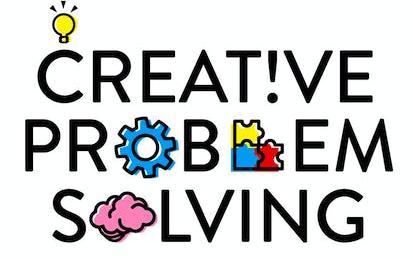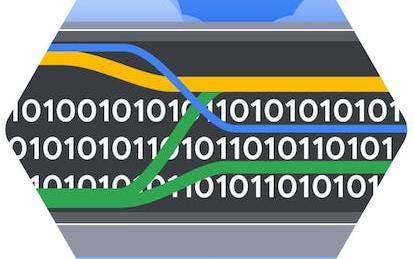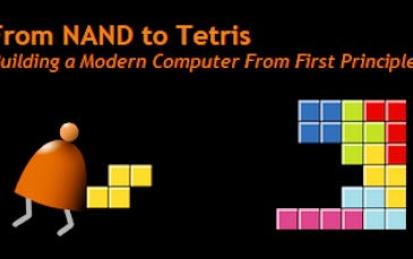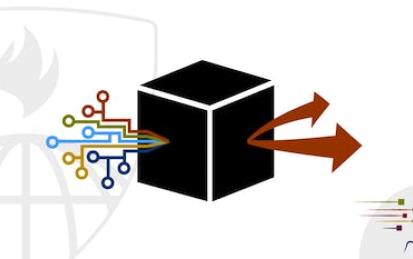

Our Courses

AWS Cloud Technical Essentials
Are you in a technical role and want to learn the fundamentals of AWS? Do you aspire to have a job or career as a cloud developer, architect, or in an operations role? If so, AWS Cloud Technical Essentials is an ideal way to start. This course was designed for those at the beginning of their cloud-learning journey - no prior knowledge of cloud computing or AWS products and services required! Throughout the course, students will build highly available, scalable, and cost effective application step-by-step.
-
Course by

-
 Self Paced
Self Paced
-
 25 hours
25 hours
-
 English
English

Introduction to Genetics and Evolution
Introduction to Genetics and Evolution is a college-level class being offered simultaneously to new students at Duke University. The course gives interested people a very basic overview of some principles behind these very fundamental areas of biology.
-
Course by

-
 Self Paced
Self Paced
-
 25 hours
25 hours
-
 English
English

Visual Perception for Self-Driving Cars
Welcome to Visual Perception for Self-Driving Cars, the third course in University of Toronto’s Self-Driving Cars Specialization. This course will introduce you to the main perception tasks in autonomous driving, static and dynamic object detection, and will survey common computer vision methods for robotic perception. By the end of this course, you will be able to work with the pinhole camera model, perform intrinsic and extrinsic camera calibration, detect, describe and match image features and design your own convolutional neural networks.
-
Course by

-
 31 hours
31 hours
-
 English
English

Data Engineering Career Guide and Interview Preparation
This course is designed to prepare you to enter the job market as a data engineer. It provides guidance about the regular functions and tasks of data engineers and their place in the data ecosystem, as well as the opportunities of the profession and some options for career development. It explains practical techniques for creating essential job-seeking materials such as a resume and a portfolio, as well as auxiliary tools like a cover letter and an elevator pitch. You will learn how to find and assess prospective job positions, apply to them, and lay the groundwork for interviewing.
-
Course by

-
 Self Paced
Self Paced
-
 10 hours
10 hours
-
 English
English

Probabilistic Deep Learning with TensorFlow 2
Welcome to this course on Probabilistic Deep Learning with TensorFlow! This course builds on the foundational concepts and skills for TensorFlow taught in the first two courses in this specialisation, and focuses on the probabilistic approach to deep learning. This is an increasingly important area of deep learning that aims to quantify the noise and uncertainty that is often present in real world datasets.
-
Course by

-
 Self Paced
Self Paced
-
 53 hours
53 hours
-
 English
English

Creative Problem Solving
This course deals directly with your ability for creativity which is a critical skill in any field. It focuses on divergent thinking, the ability to develop multiple ideas and concepts to solve problems. Through a series of creativity building exercises, short lectures, and readings, learners develop both an understanding of creativity and increase their own ability. This course will help you understand the role of creativity and innovation in your own work and in other disciplines.
-
Course by

-
 Self Paced
Self Paced
-
 14 hours
14 hours
-
 English
English

Managing Security in Google Cloud
This self-paced training course gives participants broad study of security controls and techniques on Google Cloud. Through recorded lectures, demonstrations, and hands-on labs, participants explore and deploy the components of a secure Google Cloud solution, including Cloud Identity, Resource Manager, Cloud IAM, Virtual Private Cloud firewalls, Cloud Load Balancing, Cloud Peering, Cloud Interconnect, and VPC Service Controls. This is the first course of the Security in Google Cloud series. After completing this course, enroll in the Security Best Practices in Google Cloud course.
-
Course by

-
 Self Paced
Self Paced
-
 7 hours
7 hours
-
 English
English

Introduction to Systems Biology
This course will introduce the student to contemporary Systems Biology focused on mammalian cells, their constituents and their functions. Biology is moving from molecular to modular. As our knowledge of our genome and gene expression deepens and we develop lists of molecules (proteins, lipids, ions) involved in cellular processes, we need to understand how these molecules interact with each other to form modules that act as discrete functional systems. These systems underlie core subcellular processes such as signal transduction, transcription, motility and electrical excitability.
-
Course by

-
 Self Paced
Self Paced
-
 19 hours
19 hours
-
 English
English

Inspiring Leadership through Emotional Intelligence
Emotional intelligence, hope, mindfulness, and compassion help a person reverse the damage of chronic stress and build great leadership relationships. The Positive and Negative Emotional Attractors inspire sustained, desired change and learning at many levels.
-
Course by

-
 Self Paced
Self Paced
-
 19 hours
19 hours
-
 English
English

Startup Valuation Methods
How do different types of investors think about an investment opportunity? What kind of securities and contracts do they offer? How should a company decide what is a "good deal"? This course is designed to introduce you to the challenges and pitfalls of financing new enterprises. You will learn the basic tools for valuating companies, including using discounted cashflow analysis in Excel and understanding how to apply this model to your entrepreneurial venture.
-
Course by

-
 Self Paced
Self Paced
-
 6 hours
6 hours
-
 English
English

Preparing for the Google Cloud Professional Data Engineer Exam
The purpose of this course is to help those who are qualified develop confidence to attempt the exam, and to help those not yet qualified to develop their own plan for preparation.…
-
Course by

-
 Self Paced
Self Paced
-
 7 hours
7 hours
-
 English
English

Understanding economic policymaking
This is the first of the three courses part of the Globalization, Economic Growth and Stability Specialization. This course will employ a non-technical approach to analyze how governments use policy to influence a country's economy. Upon completing the course you should be able to discuss national debts and deficits, examine fiscal and monetary policy and their appropriateness to the situation of an economy, and anticipate the results of fiscal and monetary policies and structural reform on a country.
-
Course by

-
 Self Paced
Self Paced
-
 17 hours
17 hours
-
 English
English

Introduction to Software Testing
After completing this course, you will have an understanding of the fundamental principles and processes of software testing. You will have actively created test cases and run them using an automated testing tool.
-
Course by

-
 Self Paced
Self Paced
-
 30 hours
30 hours
-
 English
English

Teach English Now! Lesson Design and Assessment
Learners will be introduced to designing lesson plans based on principles and knowledge of learning objectives, assessment plans, methods, materials, and learning activities. Learners will find and prepare appropriate teaching materials through careful analysis, adaptation and creation of professional resources. Learners will also reflect on the cohesion between lesson design and teaching philosophies.
-
Course by

-
 Self Paced
Self Paced
-
 21 hours
21 hours
-
 English
English

Science of Exercise
Learners who complete Science of Exercise will have an improved physiological understanding of how your body responds to exercise, and will be able to identify behaviors, choices, and environments that impact your health and training. You will explore a number of significant adjustments required by your body in order to properly respond to the physical stress of exercise, including changes in carbohydrate, fat and protein metabolism, nutritional considerations, causes of muscle soreness & fatigue, and the effectiveness and dangers of performance enhancing drugs.
-
Course by

-
 Self Paced
Self Paced
-
 10 hours
10 hours
-
 English
English

Mathematics for Machine Learning: Multivariate Calculus
This course offers a brief introduction to the multivariate calculus required to build many common machine learning techniques. We start at the very beginning with a refresher on the “rise over run” formulation of a slope, before converting this to the formal definition of the gradient of a function. We then start to build up a set of tools for making calculus easier and faster. Next, we learn how to calculate vectors that point up hill on multidimensional surfaces and even put this into action using an interactive game.
-
Course by

-
 Self Paced
Self Paced
-
 18 hours
18 hours
-
 English
English
Supply Chain Principles
This course will provide a solid understanding of what a supply chain is all about.
-
Course by

-
 Self Paced
Self Paced
-
 12 hours
12 hours
-
 English
English

Responsive Web Design in Adobe XD
Responsive Web Design in Adobe XD is the sixth course in a program that will equip you with the skills you need to apply to entry-level jobs in user experience (UX) design. In this course, you will design a responsive we…
-
Course by

-
 Self Paced
Self Paced
-
 40 hours
40 hours
-
 English
English

Problem Solving Using Computational Thinking
Have you ever heard that computers "think"? Believe it or not, computers really do not think. Instead, they do exactly what we tell them to do. Programming is, "telling the computer what to do and how to do it." Before you can think about programming a computer, you need to work out exactly what it is you want to tell the computer to do. Thinking through problems this way is Computational Thinking. Computational Thinking allows us to take complex problems, understand what the problem is, and develop solutions.
-
Course by

-
 Self Paced
Self Paced
-
 11 hours
11 hours
-
 English
English

Build a Modern Computer from First Principles: From Nand to Tetris (Project-Centered Course)
What you’ll achieve: In this project-centered course* you will build a modern computer system, from the ground up. We’ll divide this fascinating journey into six hands-on projects that will take you from constructing elementary logic gates all the way through creating a fully functioning general purpose computer.
-
Course by

-
 Self Paced
Self Paced
-
 44 hours
44 hours
-
 English
English

Developing Data Products
A data product is the production output from a statistical analysis. Data products automate complex analysis tasks or use technology to expand the utility of a data informed model, algorithm or inference. This course covers the basics of creating data products using Shiny, R packages, and interactive graphics. The course will focus on the statistical fundamentals of creating a data product that can be used to tell a story about data to a mass audience.
-
Course by

-
 Self Paced
Self Paced
-
 10 hours
10 hours
-
 English
English
Computational Thinking for Problem Solving
Computational thinking is the process of approaching a problem in a systematic manner and creating and expressing a solution such that it can be carried out by a computer. But you don't need to be a computer scientist to think like a computer scientist! In fact, we encourage students from any field of study to take this course. Many quantitative and data-centric problems can be solved using computational thinking and an understanding of computational thinking will give you a foundation for solving problems that have real-world, social impact.
-
Course by

-
 Self Paced
Self Paced
-
 18 hours
18 hours
-
 English
English

Programming with JavaScript
JavaScript is the programming language that powers the modern web. In this course, you will learn the basic concepts of web development with JavaScript. You will work with functions, objects, arrays, variables, data types, the HTML DOM, and much more. You will learn how to use JavaScript and discover interactive possibilities with modern JavaScript technologies. Finally, you will learn about the practice of testing code and how to write a unit test using Jest.
-
Course by

-
 Self Paced
Self Paced
-
 42 hours
42 hours
-
 English
English

Practical Machine Learning
One of the most common tasks performed by data scientists and data analysts are prediction and machine learning. This course will cover the basic components of building and applying prediction functions with an emphasis on practical applications. The course will provide basic grounding in concepts such as training and tests sets, overfitting, and error rates. The course will also introduce a range of model based and algorithmic machine learning methods including regression, classification trees, Naive Bayes, and random forests.
-
Course by

-
 Self Paced
Self Paced
-
 9 hours
9 hours
-
 English
English

Introduction to GIS Mapping
Get started learning about the fascinating and useful world of geographic information systems (GIS)! In this first course of the specialization GIS, Mapping, and Spatial Analysis, you'll learn about what a GIS is, how to get started with the software yourself, how things we find in the real world can be represented on a map, how we record locations using coordinates, and how we can make a two-dimensional map from a three-dimensional Earth. In the course project, you will create your own GIS data by tracing geographic features from a satellite image for a location and theme of your choice.
-
Course by

-
 Self Paced
Self Paced
-
 14 hours
14 hours
-
 English
English



